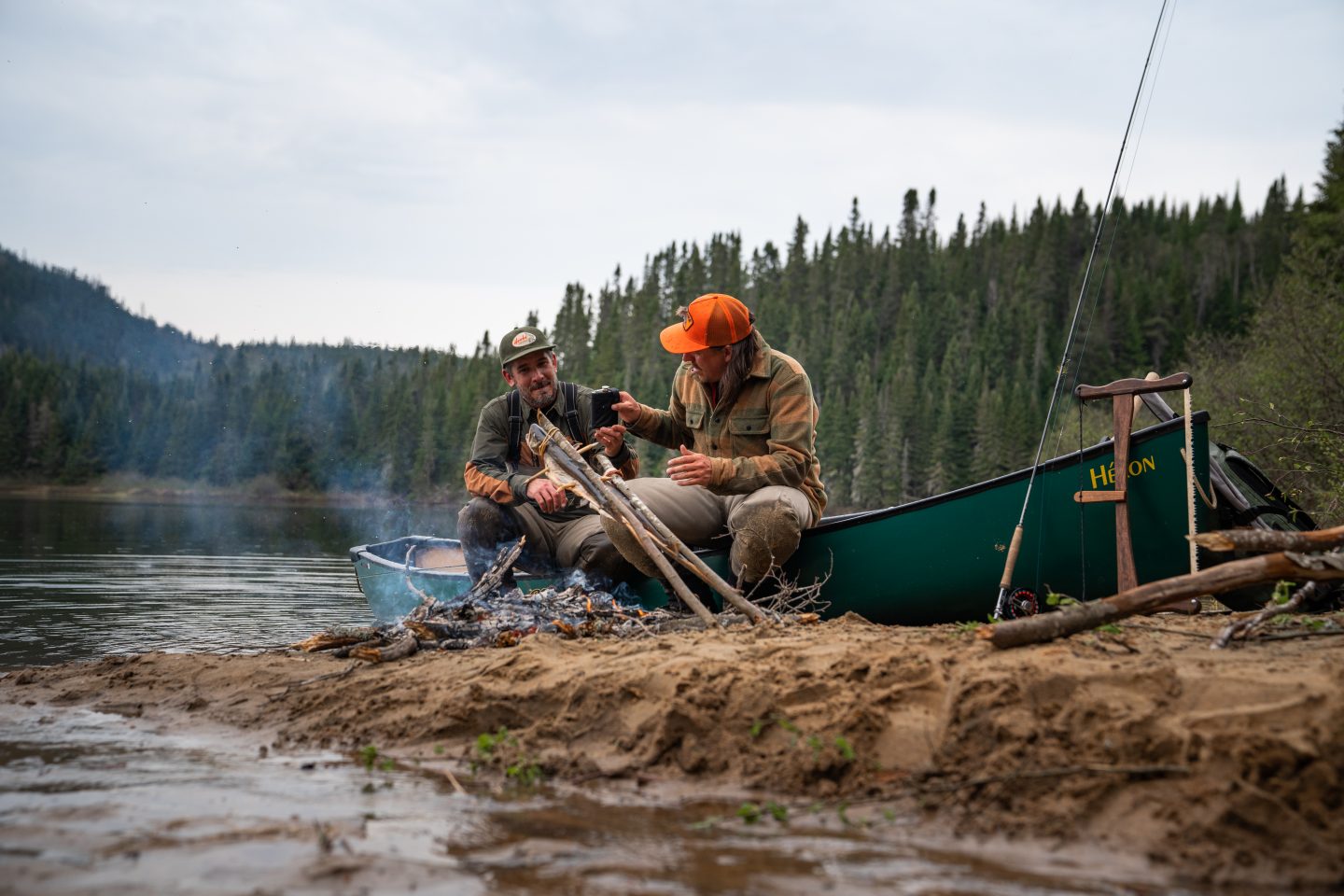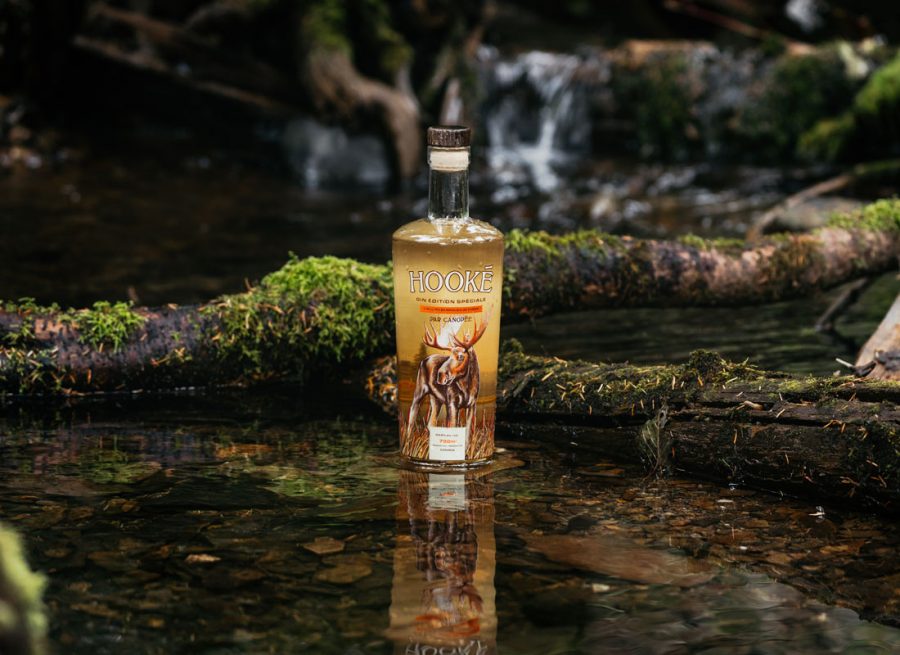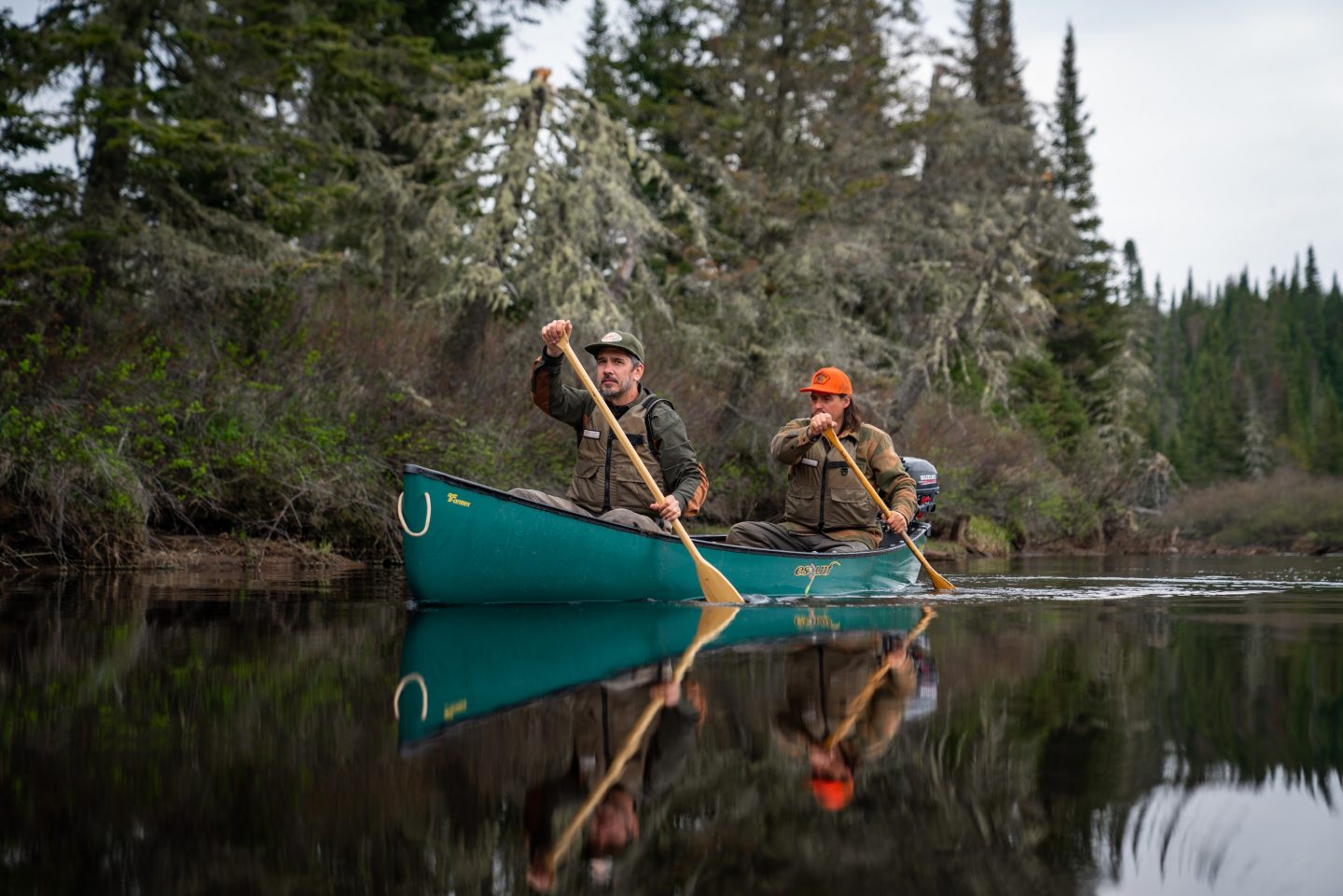
From nature to plate – Fishing trip with Hooké
In May 2021, in the heart of the Laurentian Park, two people set out on an exciting fishing trip together: Fred Campbell, a seasoned fisherman, and Jean-Philippe Leclerc, an experienced chef who specializes in rustic outdoor cooking. The purpose of the trip was to learn the basics of fly fishing with Fred, and have an authentic culinary experience with Jean-Philippe. Let’s relive their adventure with them.
Their itinerary was ambitious, taking them all the way to the headwater lake of Lac Brûlé where they hoped to catch some large brook trout in an area that is rarely fished.
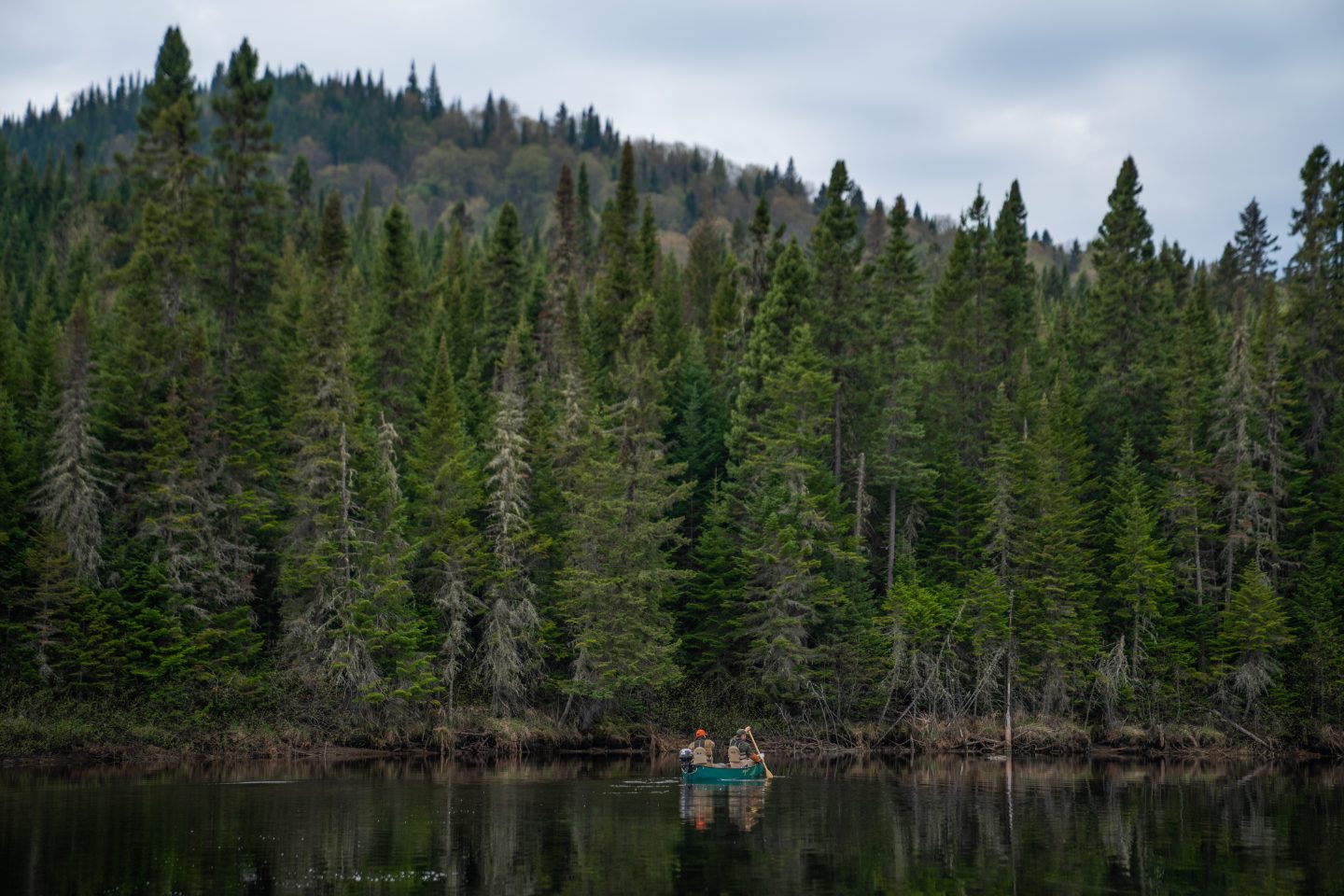
This headwater lake, which our two adventurers called “the secret lake”, is so remote that it can only reached by paddling across another lake and then portaging your canoe, so they had quite the busy day ahead of them. Just after sunrise, they headed out on the Metabetchouan River, which starts in the Laurentian Wildlife Reserve.
Once they got there, Fred taught Jean-Philippe how to read the river. “I learned how to know where the trout are in a river. Fred showed me how to cast and drop my fly just right. I’m still using the skills he taught me today.”
Jean-Philippe, a trained chef who worked in the restaurant industry for several years, has recently developed a passion for fishing, which he considers to be an art: “It’s very graceful and relaxing. The rod is like an extension of your arm. And the feeling when a fish takes the bait and the rod starts to move around—you feel like it’s the struggle of the century, even if the fish is very small. It’s both surprising and satisfying.”
The closer our two adventurers got to the “secret lake”, the more difficult the canoe portage became. Jean-Philippe has an amusing memory of his first experience with portaging. “We had to turn back several times because of how close the trees were, to make sure we were going in the right in direction. We teased each other a bit, saying, ‘Push more, Fred’ or ‘Work harder, JP’. Our patience was wearing thin, but we managed to stay cheerful.”
When they finally reached their destination, the two travel companions were amazed by the beautiful scenery. In May, spring was in full swing and the leaves were starting to unfurl. “It was a small lake surrounded by a mixed forest. There were a lot of conifers, and the leave on the deciduous trees were a soft green and kind of crunchy, like lettuce.”
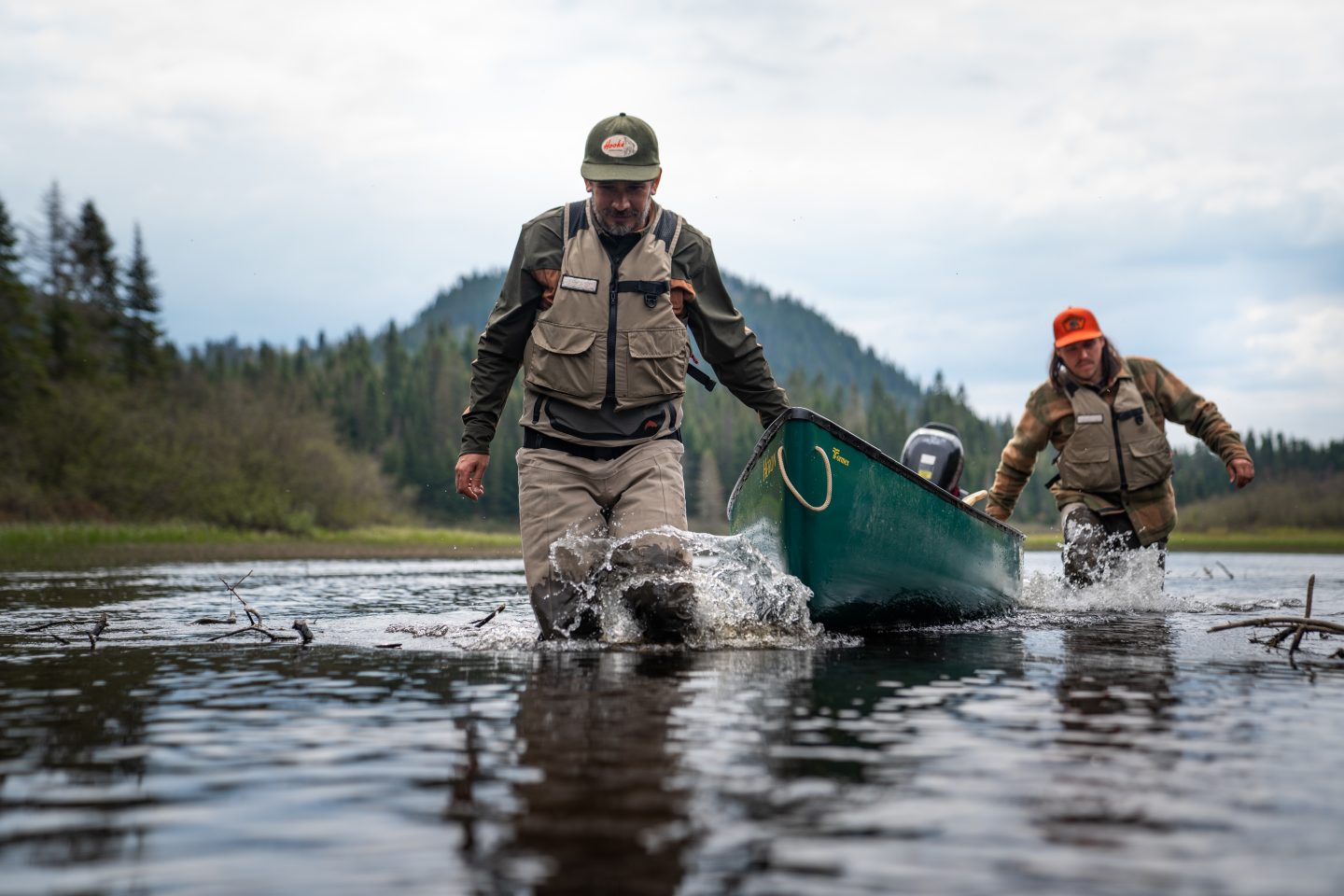
The time had come to prepare themselves a nice meal as a reward— the perfect opportunity to apply what they had learned and practised that morning. Rowing gently along the lake, the two companions quickly caught two brook trout about 16 inches long: a high-quality catch that was more than sufficient for the meal Jean-Philippe had in mind: “When you compare native fish to fish grown on a farm, the taste, texture, and colour are completely different. In Quebec, we’re lucky to have access to lakes, rivers and other natural resources. It’s important to realize how fragile that nature is, then choose the right fish and consume it in a way that respects the product.”
On the small beach, the fire was starting to crackle. Jean-Philippe went looking for the things he would need to cook the fish. On the shore, he noticed some young alder trees. “The ancestral technique of cooking on a cross calls for green wood. I peeled the alder branch to expose the cambium, the growing part of the trunk. Then I split it open lengthwise and put the trout in place, using smaller sticks to keep it open. Finally, I tied it all together using roots. The trout began to cook. There’s nothing simpler than cooking fresh ingredients over a fire. It’s a return to our roots.”
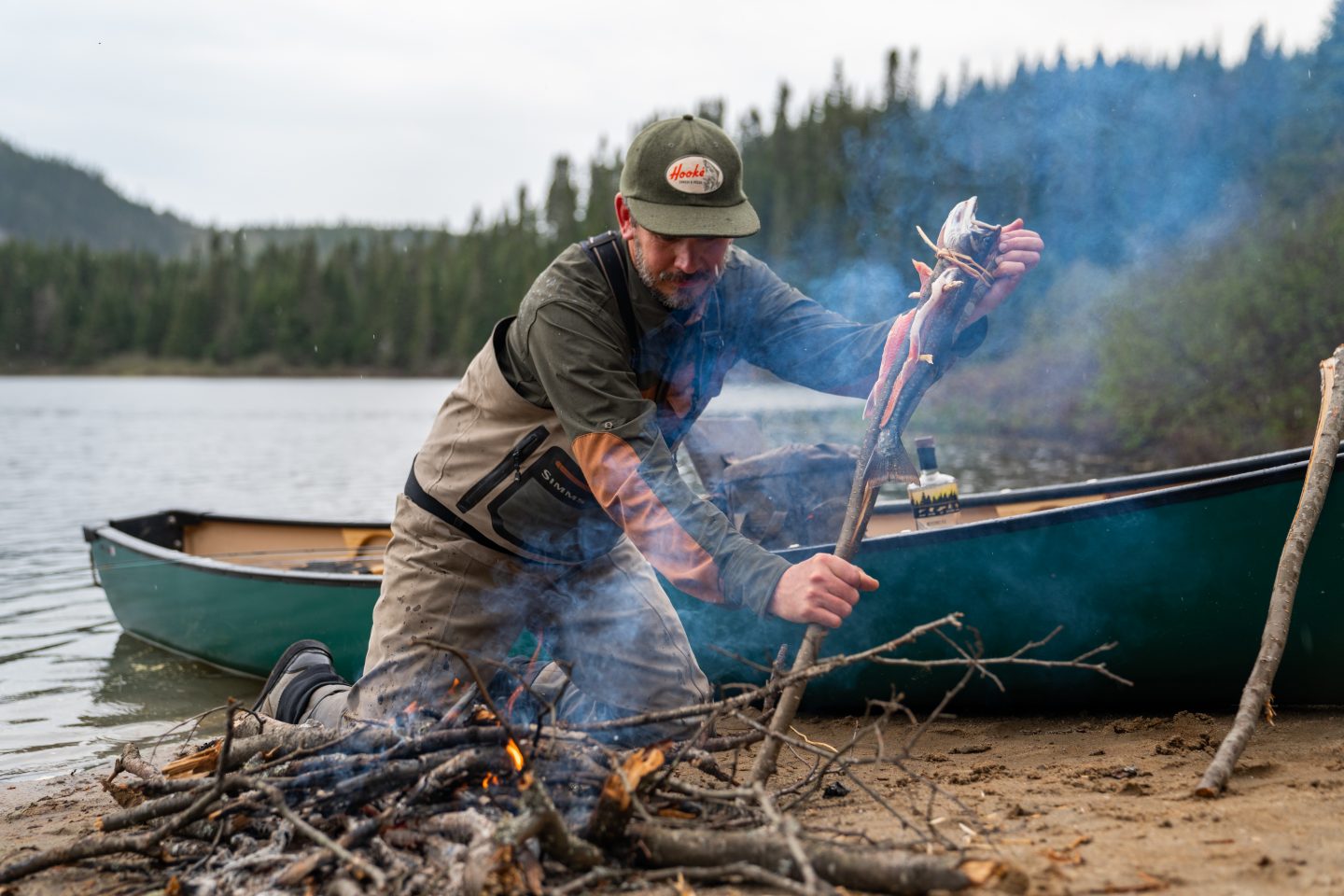
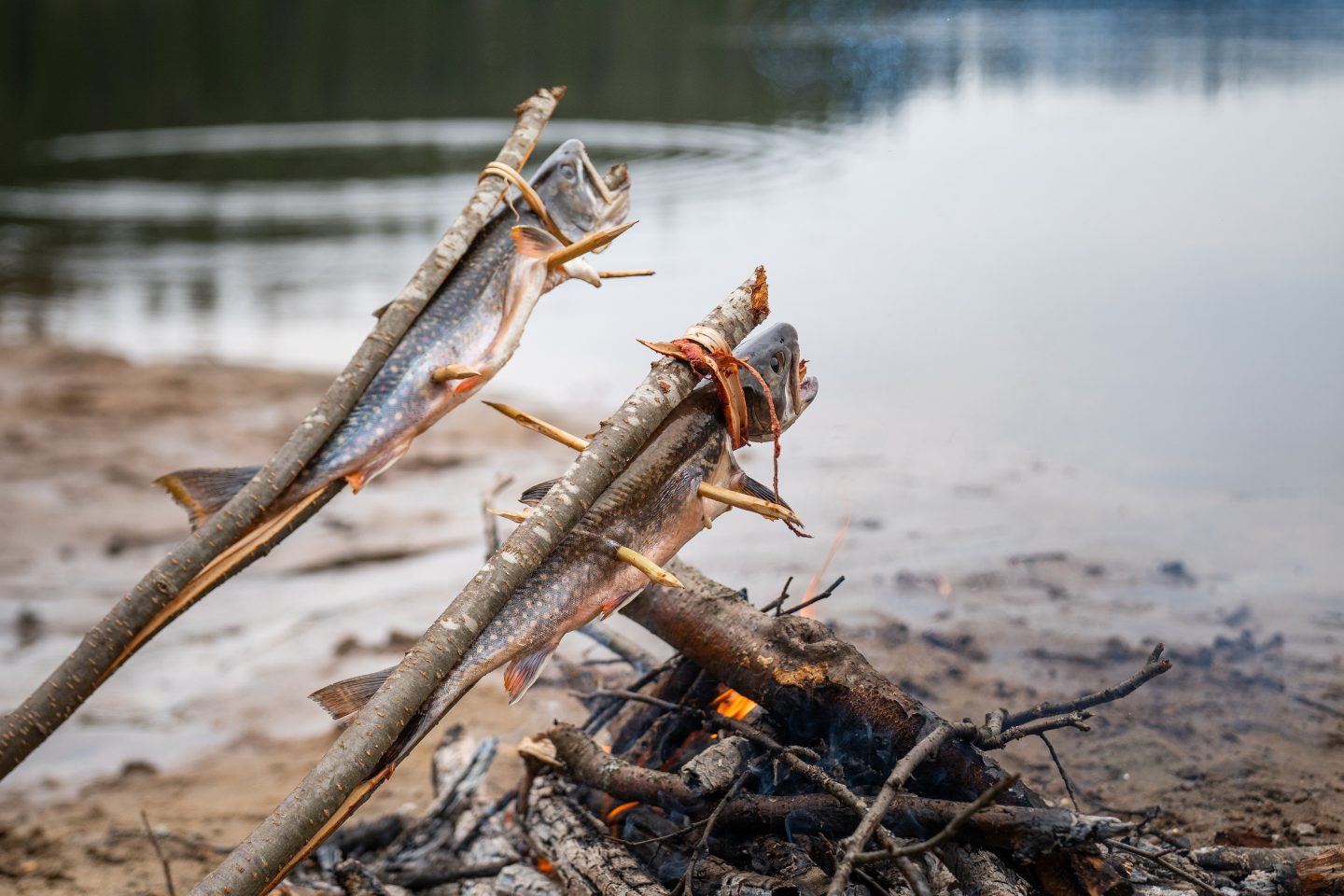
Inside his backpack, Jean-Philippe was hiding another local ingredient he planned to use to make his fish taste even better: Canopée gin. It’s tradition for fishermen to have a sip of gin to celebrate a good catch. After 20 minutes of cooking, the nature chef brushed the fish with alcohol. He continued to apply gin periodically until it was ready, about an hour and a half later. “The Canopée gin goes really well with trout. It tastes quite strongly of juniper. Mariana Distillery also included different boreal herbs such as black spruce needles and white cedar. The flavour of the juniper and the conifers infuses into the flesh of the fish. It makes it taste really good, and it also keeps it soft and juicy.
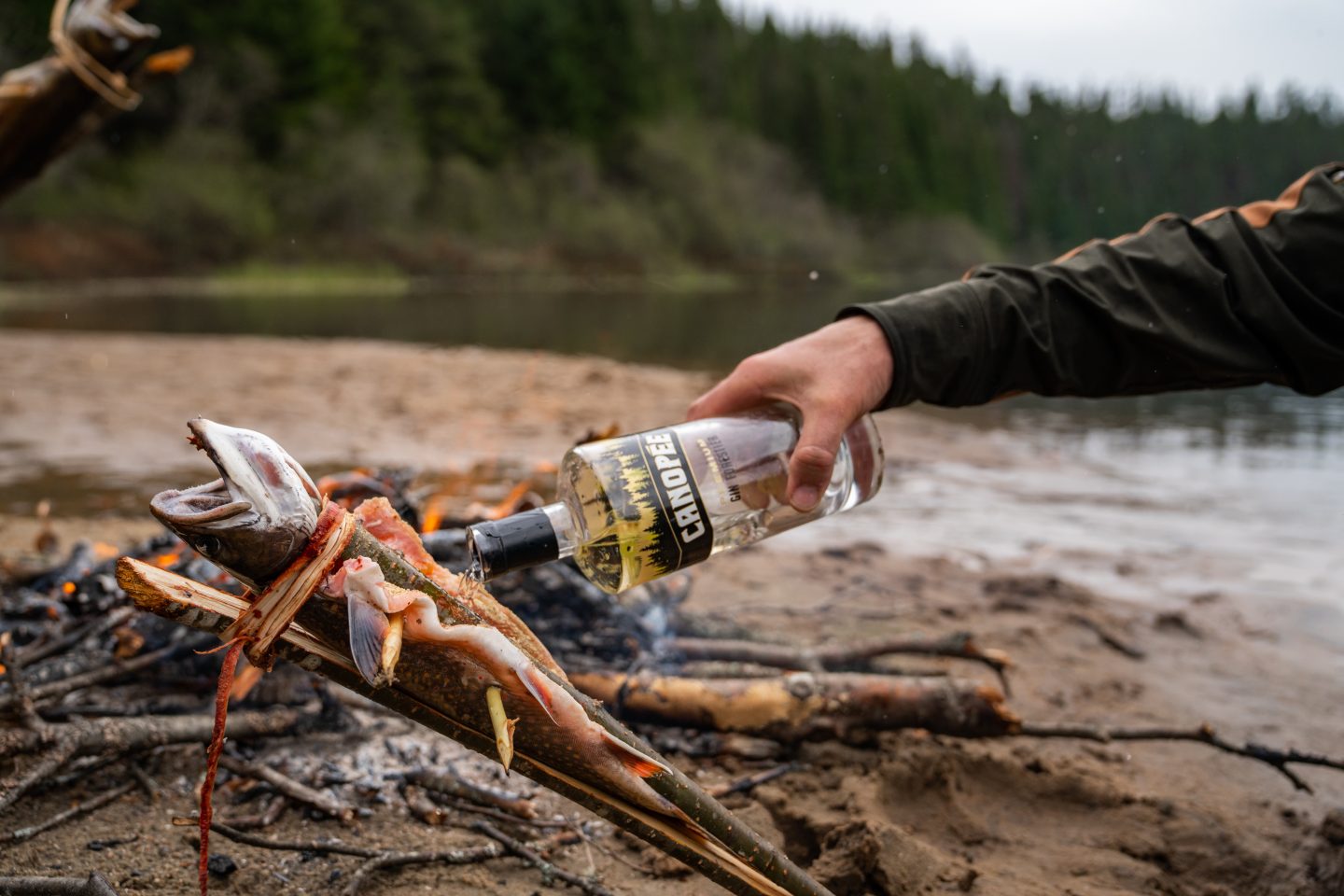
This was Jean-Philippe’s first time adding gin to brook trout, and it proved to be a risk worth taking: “It turned out really well. I’m not afraid to experiment in the field rather than trying it at home first. I think the best discoveries are often the result of trying something spontaneously.”
As the two adventurers savoured their forest meal, they had an opportunity to talk to one another. They learned a bit more about each other’s life experiences, traded hunting and fishing stories, and discussed their philosophy and how they think about what they eat. Jean-Philippe Leclerc has become a fan of rustic cooking, a passion that undoubtedly originated in his childhood in Saint-Michel-de-Bellechasse, where the St. Lawrence River was his playground. Since leaving the classic restaurant industry behind, nature has been his pantry. “I like learning. I’m curious by nature. I’m constantly learning more about what the forest has to offer us, and how to cook it. Nature is really my greatest source of inspiration.”
Once they finished their meal, the two men hopped back in their canoe under the setting sun. With their heads full of memories and their stomachs full of a good meal, rowing back up the river against the current and portaging their canoe felt like a walk in the park.
Find the full recipe here.
Text written by Hooké.
